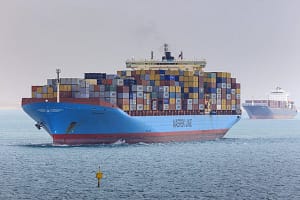New research from UK law firm TLT reveals that as the Brexit deadline looms, UK retailers are becoming more anxious about the impact of Brexit on their business and consumers.
67% of UK retailers say that Brexit-related costs will have to be passed onto the consumer.
This is significantly higher than two years ago, when TLT’s research revealed that most retailers were looking to reduce costs within the supply chain (63%) and improve efficiencies (74%) rather than pass on increased costs to consumers (29%).
The studies are based on interviews with the top 100 UK retailers, commissioned by TLT and conducted by Global Data.
Additional findings from the latest research include:
Retailers biggest concern regarding Brexit is delayed imports from the EU, with 94% citing this as a concern (47% are “very worried”)
This is followed by higher tariffs on exports to the EU (88% concerned)
81% of UK retailers are worried about future product compliance e.g. labelling
80% are worried about the availability of EU workers
78% are worried about not being able to import some goods from the EU into the UK at all
Perran Jervis, partner and head of retail and consumer goods at TLT, says:
“With less than 100 days to go until the Brexit deadline, retailers are acknowledging that the cost of getting goods to the customer will be higher. What’s become even clearer over the last year is that the extent of this will be too great for retailers to bear themselves.
“Now more than ever, retailers need to ensure that they have the most efficient supply chains possible to offset Brexit-related costs. This will involve the increased use of technology and managing their inventory and product range.
“Retailers will also have to be more open about their costs with consumers and demonstrate real increases in their cost base if prices do go up. This could include increased costs from tariffs, currency fluctuations, warehousing and labour.
“One way of insulating against the impact of Brexit while also improving retailers’ environmental footprint is to source more products domestically. However, while this solution reduces the impact of trading tariffs on those products available in the UK, it is likely to result in increased labour and materials costs.
“Another way of balancing the impact of Brexit on the business is for retailers to increase their presence in markets outside the EU and restructure supply chains to include distribution hubs within the EU and in other overseas jurisdictions.
“We are entering a new era of transparency, particularly on pricing, and will start to see new business models emerge as retailers adapt to our new relationship with the EU and other trading partners.”






Leave a Comment